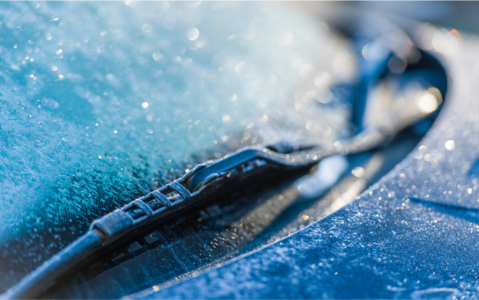Cold Weather Car Care: 9 Essential Tips for UK Drivers
Understanding how dropping temperatures impact your car can help you take steps to minimise problems during the colder months.
The UK's cold winters can take their toll on cars. From failing to start to reduced fuel economy, many motorists find their older vehicles struggle to work in colder conditions. Understanding how dropping temperatures impact your car can help you take steps to minimise problems during the colder months.
Starting Issues
One of the most common cold weather car problems is failure to start. Colder temperatures make ignition difficult due to changes in engine oil viscosity. Oil thickens in cold weather, making it harder for the starter motor to crank the engine.
Cold weather also drains car batteries faster. Low temperatures reduce a battery's efficiency and ability to hold charge. Weak batteries that still function in warmer weather may fail to have sufficient power to start the engine when the mercury drops.
Another starting issue is fuel vaporisation. Petrol does not vaporise as well in cold temperatures. This can lead to ignition problems, especially in older cars without advanced fuel injection systems. Diesel vehicles are particularly susceptible to starting problems due to the slowing of the combustion process in cold weather.
Reduced Fuel Efficiency
Your fuel economy will suffer in cold weather. Colder ambient temperatures increase friction in the engine requiring more work and therefore, more fuel to overcome it. This effect is exacerbated by thicker cold engine oil.
Additionally, winter fuel formulations are less energy efficient. The changes made to improve volatility and prevent freezing result in fewer miles per gallon. Frequent short trips, common in winter to avoid driving in bad weather - also reduce fuel efficiency as the engine cannot reach optimal operating temperature.
The winter weather itself also impacts fuel economy. Headwinds from winter storms put extra load on your engine requiring more fuel. Tyre pressures drop in cold weather due to the contraction of air molecules. Under-inflated tyres create more rolling resistance again demanding more fuel.
Battery & Electrical Issues
In addition to starting problems, cold temperatures increase the load on the battery. Features like seat heaters, lights and demister fans all place extra demand. Meanwhile, the battery's output and recharge capabilities decrease in cold weather. This added strain can cause issues with battery charge and electrical systems.
Electrical components like alternators also suffer reduced efficiency in cold weather. Warning lights related to the charging system or a weak battery are more likely in the cooler months. Extreme cold may lead to complete electrical component failure. Rubber belts and hoses can also crack or malfunction when temperatures drop.
Tyre Problems
The rubber in tyres stiffens and loses flexibility in cold weather, just like engine oil thickens. This has implications for grip and inflation pressures. Hardened rubber does not grip as well on winter roads. Braking distances increase, requiring more care from drivers. Under-inflated tyres negatively affect handling and fuel consumption. It's important to check and adjust tyre pressures frequently during cold snaps.
The combination of stiff rubber and under-inflation can increase instances of punctures as tyres are more vulnerable. Ensure good tread depth and inspect your tyres regularly during winter.
Visibility & Body Issues
Cold weather can cause fogging and frosting of windows, mirrors and lights. This inevitably can lead to reduced visibility and safety issues. Keeping your vehicle clear of snow and ice build-up is critical for visibility in winter driving conditions.
Road salts and other winter treatments accelerate the corrosion and rotting of exposed metal and rubber components. While UK winters are milder than in other countries, over time the impact on undercarriages, wheel arches, brakes and other parts still adds up. Be diligent about washing your car during winter to remove corrosive agents.
How to Prepare Your Car for Winter
While UK winters may be relatively mild, taking some preparatory steps can minimise the impacts of cold weather on your car:
- Service the vehicle before winter - engine, battery, brakes, tyres, lights etc.
- Check antifreeze and consider changing to winter coolant formulation
- Use thinner grade engine oil like 5W30 or 0W30 to improve starting
- Inspect tyres and adjust pressure - consider winter or all-season tyres
- Check battery age and charge - replace if old or weak
- Lubricate door, boot and bonnet seals to prevent freezing shut
- Stock emergency kit - ice scraper, de-icer, jump leads, torch, food, blankets
The colder months challenge both car and driver. Understanding winter's impacts allows you to anticipate issues and keep your vehicle in optimal shape for safe cold weather journeys. A little preparation goes a long way towards stress-free winter driving.




